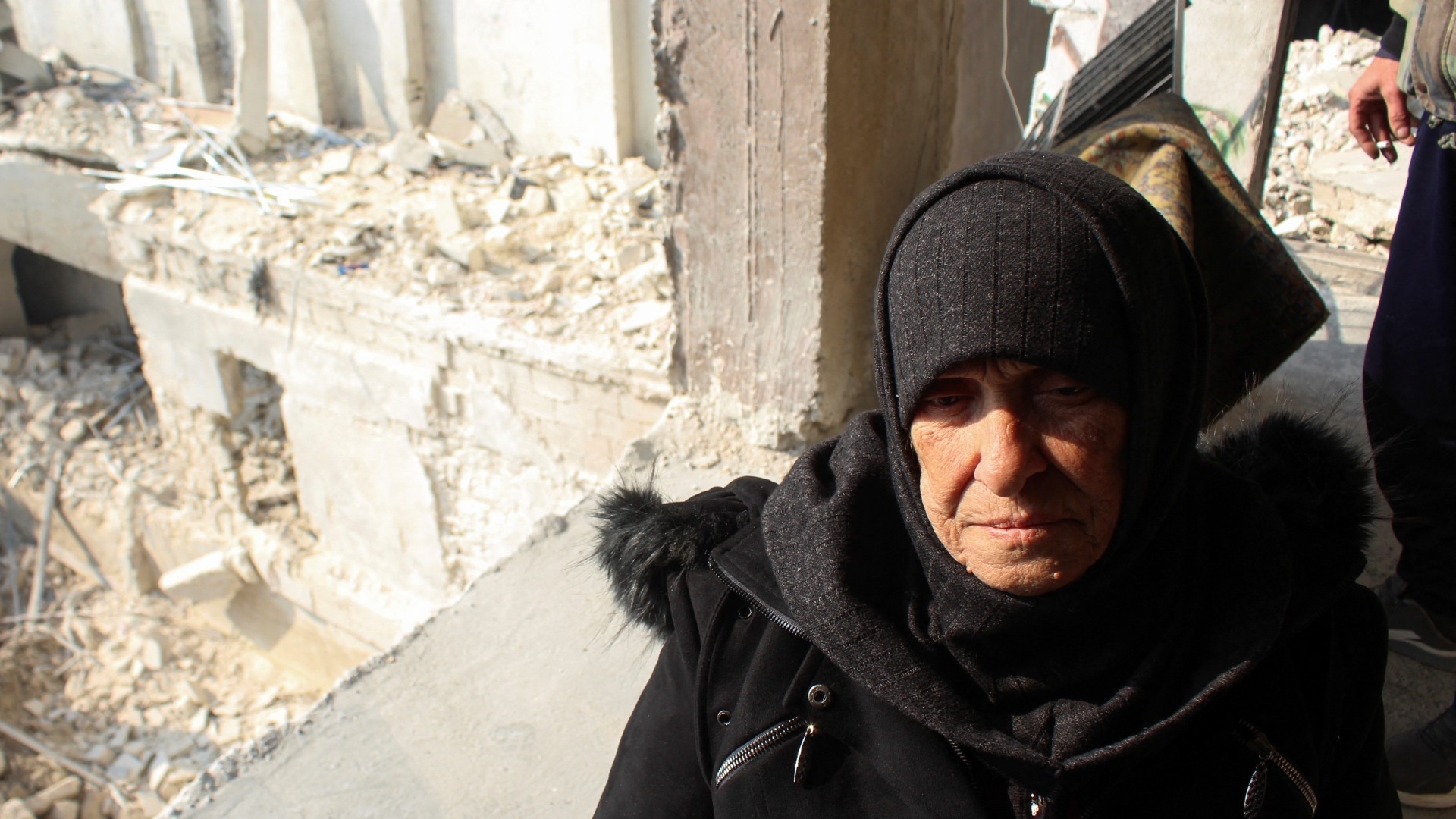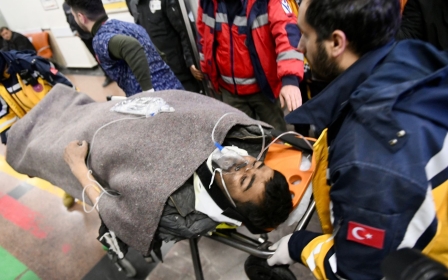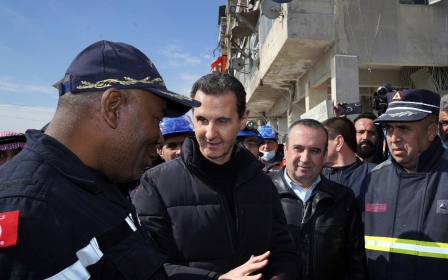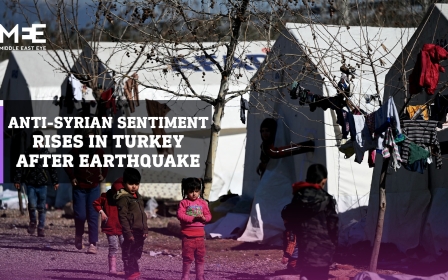Syria earthquake relief efforts bring vital foreign remittance system to its knees

As Syria reels from the deadly earthquakes that have shattered Aleppo, Latakia, and Idlib provinces, many cash-strapped survivors have hurried to money exchange offices for vital transfers.
Yet the sudden surge in "hawalas" (money transfers) has placed Syria’s informal monetary system, which links the heavily sanctioned country with the outside world, under unprecedented stress.
This has led to quake victims travelling to various different provinces in an attempt to find a bureau where the transfer can go through, and others simply unable to receive desperately needed assistance.
Due to more than a decade of war, Syrians have come to depend on wire transfers of money from abroad.
Commonly, Syrians in the diaspora have paid money to transfer companies in Europe through card or e-transfer from their western bank accounts, funds that are then sent on to exchange offices in Syria and converted to the local lira currency.
New MEE newsletter: Jerusalem Dispatch
Sign up to get the latest insights and analysis on Israel-Palestine, alongside Turkey Unpacked and other MEE newsletters
For many Syrians, these transfers are their only way out of poverty.
Yet with 3,688 confirmed dead in Syria from the 6 February disaster (alongside another 38,044 in Turkey where the quake hit), and several thousand more with their lives wrecked, this system has been put under strain like never before.
Though some transfer firms have continued to work in Syria during the war, Western Union, the world’s largest money wiring service, has previously not allowed transfers there, as it is wary of sanctions.
However, it has now lifted restrictions and waived transfer fees for certain money transactions until 8 March 2023 in solidarity with the people of Turkey and Syria.
In response, Syrians rushed to receive money from friends and family in the diaspora desperate to give earthquake victims some relief and assistance.
'These hawalas are our lives. It’s my only income. My son lives in Germany. He sends what he can'
- Amer Ibrahim, Latakia resident
Yet problems quickly emerged.
Transfer offices have been totally unable to meet the demand, with huge queues building up.
Some branches have closed altogether. And in Aleppo, direct transfers from abroad could not be received at all through Western Union.
Images have circulated showing groups of frustrated customers waiting in the cold for their transfers at Latakia’s official Western Union branch at the Fouad Remittance Office.
In Aleppo, people were unable to receive direct Western Union transfers from abroad at all. Instead, they were forced to travel to Latakia or Damascus to be paid. Many of them were earthquake survivors.
The poorly organised system quickly provoked panic. One Syrian asked online: “Is it true that in Aleppo there is no exchange company that receives external transfers? Help us, because they are travelling to Damascus to get a transfer.”
This prompted Ibrahim Aba Zaid, chair of al-Fouad Exchange Company, which represents Western Union in Syria, to explain that branches in Aleppo were closed by the war and unable to now take on the demand. Yet there was a workaround.
“Senders can send transfers with names living in Damascus, Latakia, Homs, Tartous, or Hama, and these names re-transfer to Aleppo with no commissions,” he said.
Though the company has promised to charge no commission on money earmarked for quake-hit regions, the process of transferring multiple times to reach Aleppo has proved overwhelming for traumatised victims.
Amer Ibrahim, a 43-year-old resident of the quake-hit city of Latakia, told Middle East Eye: “The queues in the city of Latakia have been chaotic. There has been row upon row of people waiting to pick up their hawalas.”
“It’s so disorganised, and it’s a real mess. Some people couldn’t even access the money at all. They told us that there is no internet, or that the network they used to track the transfers is down,” he added.
“These hawalas are our lives. It’s my only income. My son lives in Germany. He sends what he can. I saw a person from Aleppo. He said he lost his house in the earthquake. He came all the way down because he had no money and apparently there wasn’t a Western Union location in the entire city of Aleppo.”
Cash-strapped Syrian authorities
Usually, money transfer offices are closed on Fridays in Syria, but they were ordered to open in order to help boost funds and prop up the ailing Syrian lira in the earthquake’s aftermath.
Syria has been seeking other ways to strengthen the lira. The central bank announced all payments due for expatriates paying for military service exemption - some of which can total upwards of $10,000 depending on the grading criteria that define the ability to serve - will only be accepted in local currency.
Some appear to be profiting from the crisis. In rebel-held northwestern Syria, money exchange companies have reportedly doubled their fees from around five percent to 10 percent.
And some transfer offices in the region appear to be having cashflow issues and are struggling to meet the demand. Many people have complained they are unable to obtain transfers worth more than $300.
The earthquake has added more disruption and crisis to a country already experiencing an economic meltdown. Approximately 15.3 million Syrians have been suffering under the economic crisis brought about by a decade of war, severe western sanctions, and a similar financial crash next door in Lebanon.
Alongside a harsh winter and a cholera outbreak, already almost 70 percent of Syrians needed aid to live on even before the earthquake.
Remittances from abroad have been a light in the long, dark tunnel of poverty for the majority of Syrians in territory held by Bashar al-Assad’s government and many more in rebel-held lands.
Middle East Eye delivers independent and unrivalled coverage and analysis of the Middle East, North Africa and beyond. To learn more about republishing this content and the associated fees, please fill out this form. More about MEE can be found here.




